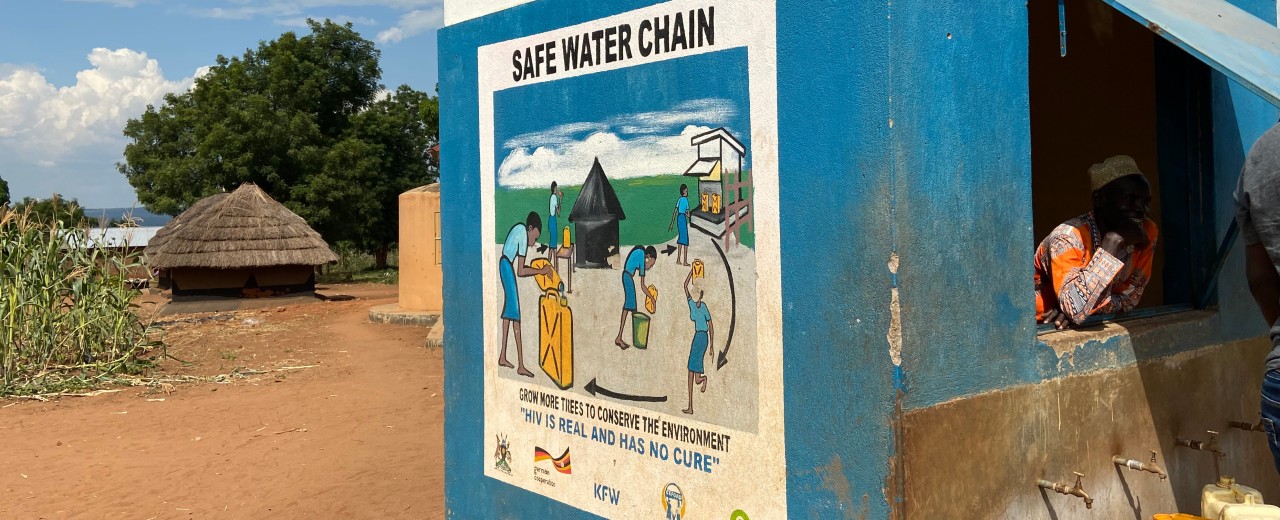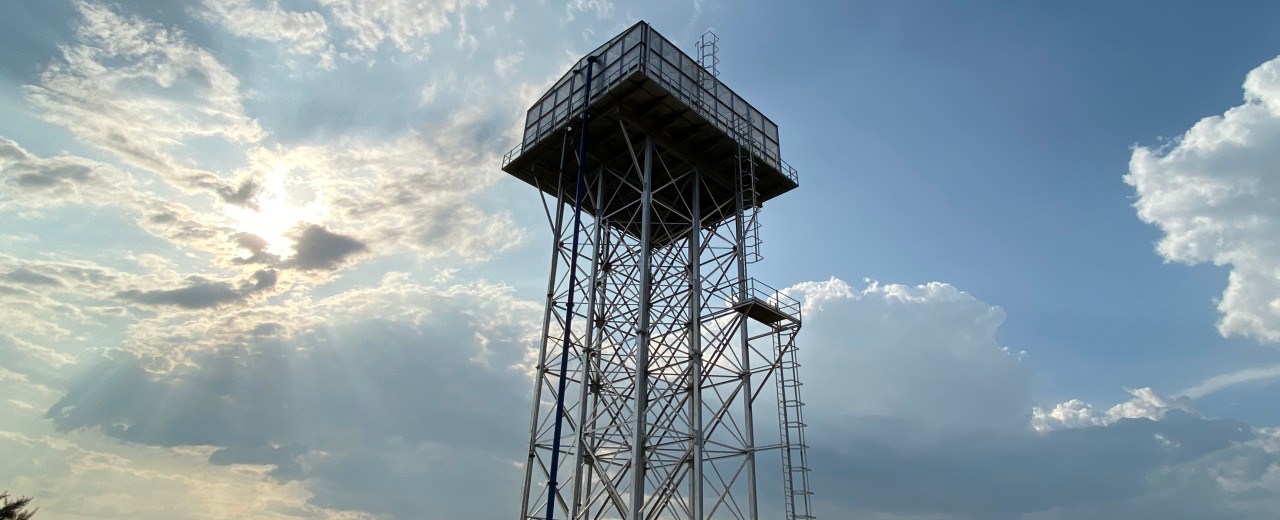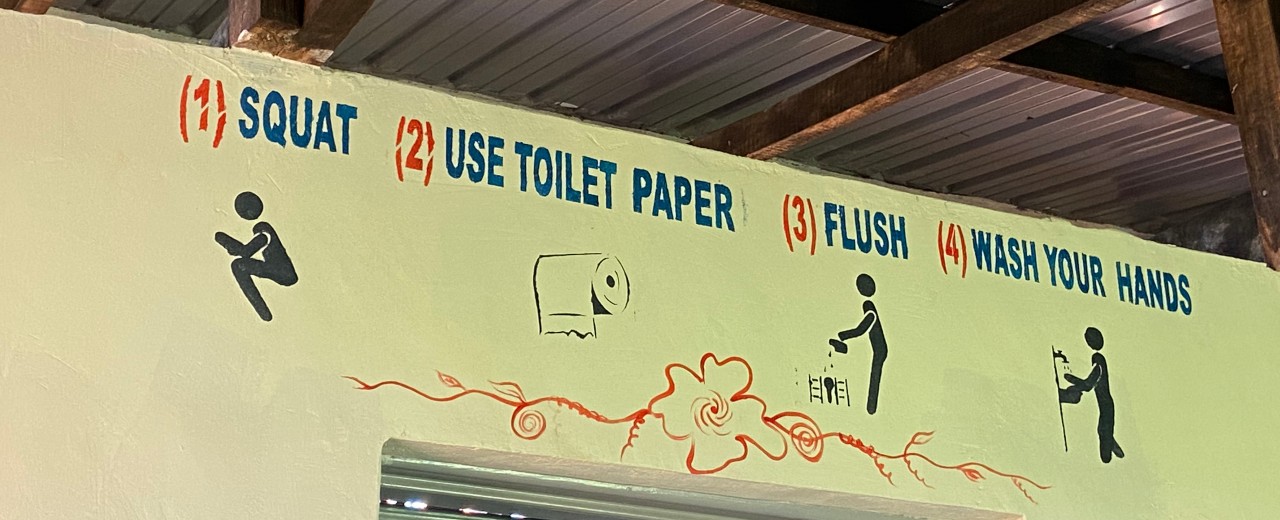Clean water and sanitation in Uganda
Water supply for refugees and host communities
Uganda is characterised by exemplary refugee policy. Many people from South Sudan, the Democratic Republic of Congo and Sudan find refuge there. More than 1.7 million people have now fled to Uganda, most of them in the north, predominantly women and young people. The host communities cannot adequately guarantee water and sanitation services. KfW is therefore financing improved infrastructure on behalf of the German Federal Government and is supporting Uganda in replacing emergency aid with long-term, sustainable development programmes.
Refugees in Uganda enjoy many rights. They can move freely, have a work permit and are assigned a piece of land. They also need this, because there is hardly any paid work in the host region in northern Uganda. However, subsistence agriculture is rarely enough to secure people’s own livelihoods. Despite the progressive refugee policy, they suffer from a lack of resources, because the host communities are not prepared for such a large number of inhabitants. International aid organisations also have dwindling funds to ensure a supply; in particular, there is a lack of clean water and sanitary facilities.
The already above-average poor population in northern Uganda often has access to less than 20 litres of water per person per day, which is less than the minimum recommended by the World Health Organisation. The existing water and sanitation infrastructure is already insufficient given the high population growth. Climate change is making the situation worse as droughts and flooding increase in the region. As a result, risks are increasing that the already scarce local water resources will become polluted. Without access to clean water, diarrhoeal diseases are more common.
In order to alleviate the acute water shortage in Uganda’s refugee settlements during the most intense phase of the humanitarian crises, the United Nations and non-governmental organisations originally built supply lines that replaced the expensive transport of water by tanker trucks. However, these urgently constructed utilities were never meant to ensure supply for years and decades.
KfW has been involved in the Ugandan water sector nationwide for decades on behalf of the Federal Ministry for Economic Cooperation and Development (BMZ) and works closely with state agencies, in particular the Ministry of Water and Environment. Since 2016, the commitment has focused on the northern region of Uganda to contribute to a long-term improvement in the provision of water and sanitation for refugees and host communities that goes beyond emergency aid.

So far, a total of 16 small towns and regional growth centres near refugee settlements have benefited from improved infrastructure, including in schools and rural health care centres. To ensure rapid assistance, KfW also financed measures to improve the water supply in selected refugee settlements, for example through the non-governmental organisations Oxfam and Save the Children as well as UNHCR. National standards were always used, and long-term operation was agreed with the Ugandan authorities.
Climate resilience is also of greater importance in newer projects. The urgency of preparing refugees and host communities against the negative effects of climate change can be seen in the example of the city of Arua. As one of the largest cities in the north, it attracts many refugees. The water supply there is already insufficient today and often fails during drought periods. To ensure the long-term supply to the city and surrounding communities, construction of a dam is being considered. KfW is also financing measures for improved provision of water and sanitation as well as waste management to rapidly improve the supply situation of the people in Arua and protect water resources from further pollution.

The EU is now complementing KfW’s commitment by providing funds to improve the water supply and provision of sanitation in up to 200 schools in the north. This also includes suitable facilities for menstrual hygiene – an important prerequisite for girls’ regular school attendance.
A key concern of the Ugandan government and KfW is to support the process of transitioning from humanitarian emergency aid to sustainable development in Uganda. The challenges remain great. In addition to urgently necessary investments in the now overloaded and outdated water and sanitation infrastructure, the water supply in the refugee settlements must be made more cost-efficient. This is the only way for state-owned utility service providers to replace the operations previously improvised by NGOs, operate systems sustainably and cover the costs with user fees. The previous supply from UN organisations based on emergency aid has reached its limits. In this situation, KfW’s contribution is essential in order to ensure the long-term supply of refugees and people in the host communities and to improve their living conditions in the long term.
Share page
To share the content of this page with your network, click on one of the icons below.
Note on data protection: When you share content, your personal data is transferred to the selected network.
Data protection
Alternatively, you can also copy the short link: https://www.kfw-entwicklungsbank.de/s/enzB4-Jj
Copy link Link copied